This review was originally published in our March 2022 newsletter available here.
Since then the Co-operative Bank has responded to our questions, and their responses are included here.
At the end of February, the Co-op Bank released its annual Sustainability Report, setting out what it has done in 2021 on ethics and environmental issues. You can read the report here [PDF]. As a Customer Union dedicated to ensuring the bank keeps its ethical standards high – as well as working for a return to co-operative ownership – it’s important for us to take a close look at the report, tell you about important developments, and ask questions of the bank where needed. So let’s do that.
First up, this year’s report has been audited by an independent sustainability assurance company, SGS – marking a return to external assurance after a three-year hiatus. We’re delighted to see this, as we have been calling for a return to such assurance since this was surprisingly dropped for the bank’s 2018 report. We hope to see a commitment to externally-audited reporting in the bank’s new Ethical Policy later this year.
More on what the auditors actually had to say later, after we take a look at what’s in the report itself.
The bank’s main targets: a net zero target is coming.
Up front, the bank sets out its most important targets for environment, social and governance issues, including how the bank did in 2021 and what it plans to do in 2022. Significantly, the bank plans to set a net zero target for the emissions caused by its finance, by the end of this year. We called after last year’s report for the bank to start measuring and managing its financed emissions, and so we’re pleased to see this.
Most large UK banks have already set net zero targets, although these are typically long-term 2050 targets that allow room for continued and reckless financing for fossil fuel expansion (which the Co-op has long ruled out). We’re looking forward to a realistic but leading-edge target which is up to the challenge of the climate crisis. We are also a little disappointed to read in the report about “work being undertaken within the financial services sector to establish a reporting framework” for financed emissions, which is framed as a reason for the bank not yet having its own targets in place. There are several well-developed standards in place for financed emissions which are being used by banks large and small, and we also pointed this out last year.
Other main targets include keeping the bank’s direct carbon emissions low, avoiding waste to landfill, supporting the co-operative sector, volunteering, and improving gender diversity. That’s as well as a target to launch an updated Ethical Policy this year, and an interesting plan to launch ESG labelled bonds, Green Mortgages and Homeless Bank Accounts.
Questions for the bank:
- The bank’s target on waste is to recycle 60% of operational waste by 2022. But the report shows that 70% of waste was already recycled in 2021. That seems like a strong achievement, but why not set a more ambitious target, rather than one that has already been met?
UPDATE: The bank's response (received 29.04.22): "We were really pleased with the improvement in the percentage of waste recycled in 2021 but are conscious that a return of more colleague into our offices in 2022 may present some challenges this year. We have therefore set what we hope will be an achievable target for this year, and are hoping to be more ambitions in future years once our post-covid working patterns are established."
- The bank states that it will look to implement additional reporting on financed emissions (Scope 3) when a framework has been agreed. What framework is the bank referring to? Has the bank considered the PACTA and PCAF frameworks, which are among those already in use by other banks?
UPDATE: The bank's response (received 18.05.22): "We want to make sure we commit to the most suitable framework for our Bank that will allow us to meet our financial reporting obligations and fulfil the requirements of other programmes such as the UN Environment Programme Principles for Responsible Banking. We’re working with a leading sustainability consultancy to help us to set credible science-based targets and develop impactful ways to achieve net zero as quickly as possible. We’re looking forward to being able to demonstrate some great progress on Scope 3 in our next Sustainability Report but will ensure we keep the Customer Union for Ethical Banking updated on our Scope 3 progress throughout the year."
Environmental data shows falling lending to renewables
The bank’s environmental data generally shows the bank’s impact on the environment trending in the right direction, with greenhouse gas emissions for example down 18% in 2021 even after last year’s 47% decrease. Covid has had a big impact here, and the bank recognizes its challenge is to continue this trend.
One indicator that is not heading in the right direction is lending to the renewable energy sector. This has declined from £24 million in 2019 to just £9.5 million in 2021 – and the bank’s 2022 target is only to maintain “ongoing investment”. There’s no explanation given for this decrease. It’s vital that the bank keeps reporting on indicators even when what they show is uncomfortable, but we would like to see the bank set a more ambitious target to get its lending for renewables growing again, and especially to support community-owned projects.
Questions for the bank:
- What is behind the decline in the bank’s lending for renewables in 2021? Does the bank think it will be able to reverse this in 2022 and does it have concrete plans to expand its lending for this sector?
UPDATE: The bank's response (received 29.04.22): "A couple of the bigger renewables projects were repaid during 2021 and the general trend is that these loans are amortising. Since the publication of the Sustainability Report we have launched our Green, Social and Sustainability Financing Framework (The Co-operative Bank Green Social and Sustainability Financing Framework (23 Feb 2022)) which enables the Bank to issue green, social and sustainability bonds to facilitate the funding of assets with environmental or social benefits that directly contribute to the United Nations Sustainable Development Goals . The Framework provides a transparent set of criteria to bring positive social benefits, transition to a low carbon economy and support our purpose to make a positive difference to the lives of its customers and communities."
Ethical policy implementation: ten businesses declined
 As we know, under the Co-op Bank’s unique Ethical Policy, every business application from the bank is screened, with those that raise potential issues referred for enhanced screening. In 2021 there were 328 businesses referred and 10 declined. Both of these figures are down on last year, but an increase on the years before that.
As we know, under the Co-op Bank’s unique Ethical Policy, every business application from the bank is screened, with those that raise potential issues referred for enhanced screening. In 2021 there were 328 businesses referred and 10 declined. Both of these figures are down on last year, but an increase on the years before that.
The ten businesses turned away by the bank include six businesses that were involved in the oil and gas sector, breaching the bank’s climate commitments; one business involved in the manufacture of indiscriminate weapons; one linked to a case of modern slavery; one which failed to meet the bank’s standards on animal welfare and one existing customer that was “asked to find a new banking provider due to a reputational conflict” with the Ethical Policy.
Declining potential customers (and sometimes exiting customers) due to ethical concerns and reporting on it in this way continues to set the bank apart from its competitors. However it does seem that reporting on declines is less detailed than in previous years, and while we understand the bank cannot usually name names, we would like to see a little more on why these businesses were turned away.
Questions for the bank:
- What area of the bank’s Animal Welfare policy did the one customer declined here fall foul of? For example, the bank has ethical policy statements on intensive farming, animal testing of cosmetic and household products, the fur trade, degradation of habitats and other areas. Also, can the bank indicate what kind of issues were raised by the existing customer that presented a reputational conflict?
UPDATE: The bank's response (received 29.04.22): "We have worked with a national animal charity to ensure that animal welfare is included as part of the on-boarding checks for businesses engaged in dog breeding. This issue has become more prominent as more people have bought pets during the pandemic and we have seen an increase in business account applications from this sector. In this case, we viewed the customer’s activities to be in conflict with the Ethical Policy statement on animal welfare due to evidence of enforcement against the business owner by the local council and evidence that this was essentially a ‘puppy farm’."
The reputational risk posed by the existing customer related to reported irregularities within the governance and finances of the organisation.
… and lots more good stuff – too much to cover here.
Elsewhere the report details the bank’s support for The Hive, the support programme for co-operative businesses (£1.7 million since 2016, and another £400,000 coming in 2022); its work with Centrepoint to tackle youth homelessness (£2 million raised since 2017); customer donations for five charity partners as part of the bank’s Everyday Rewards scheme (£1.3 million since 2016); and its support for environmental projects around the world through its carbon offsetting projects.
And on the campaigning front there are updates on the bank’s campaigning on human rights with Amnesty – where customers and staff are supporting human rights defenders through Write for Rights, and the bank is supporting training the next generation of defenders through the Rise Up programme. And on its new partnership with the Zero Hour campaign for a Climate and Ecological Emergency Bill. We’ve been urging the bank to return to meaningful campaigning on issues like climate change, and the bank is well and truly back in this space. Great.
The Auditor’s statement
The report ends with a statement from the bank’s new sustainability assurance provider, SGS. The auditors give the bank a clean bill of health in terms of the accuracy of the bank’s 2021 data, consistent with the ‘limited’ level of assurance that they have been commissioned to provide. They also identify several areas of good practice, and several more areas for improvement. Among these is a recommendation to expand the scope of the bank’s “zero waste to landfill” target to include sites where the landlords rather than the bank control waste management, which strikes us as a particularly worthwhile point for improvement.
In terms of the auditor’s work on the bank’s ethical screening, it is clear SGS reviewed the numbers of businesses reviewed and declined, but it appears they did not review the decision-making itself, for example to make sure that decisions made are well-evidenced and that the Policy is applied consistently. Previous auditor’s statements make clear this was reviewed in the past, and we would ask the bank and SGS to make sure that ethical decision-making is subject to proper external scrutiny. We would also like to see the bank return to a higher (“reasonable” or “high”) level of assurance for its ethical screening activities in particular, given the importance and uniqueness of the bank’s screening approach.
There’s a lot more in the Sustainability Report – although at 28 pages (including a four-page statement from the auditor) it remains pretty accessible. If you’d like to know more, give it a read and let us know any thoughts you have.
Please do share this analysis on social media or by email with other bank customers who might be interested.



 info@saveourbank.coop
info@saveourbank.coop @SaveOurBank
@SaveOurBank @saveourbank
@saveourbank
